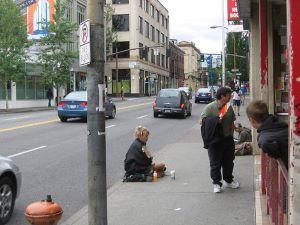Pot legalization activists head to Harrisburg, an Oregon agency estimates that drug arrest levels will rise again after recriminalizing drug possession, and more.

Delaware Begins Rolling Out Rules for Legal Marijuana Commerce. The state's Office of the Marijuana Commissioner has begun releasing informal draft regulations for legal marijuana commerce. The informal drafts address packaging and labeling, health standards, and tracking marijuana and are being released in a bid to generate feedback.
"When it's good feedback with things we haven't thought of or we should have thought of or we need to make adjustments, we can make those adjustments before we even start that formal process. We're hoping that helps the process go a little smoother," Coupe said.
"What we're hoping is that members of the public, those that are going to be involved in the marijuana industry in Delaware have an opportunity to look at these regs and look at them in smaller sections, give us informal feedback - it'll help us be more agile, keeps the process more dynamic," Coupe added.
People have until March 29 to comment on the proposed rules and regulations. Comments are accepted at the Office of the Marijuana Commissioner, www.omc.delaware.gov.
Pennsylvania Legalization Supporters Rally at State Capitol. Organized by the Lehigh Valley chapter of NORML, marijuana legalization supporters rallied at the state capitol in Harrisburg Monday to urge lawmakers to advance Gov. Josh Shapiro's (D) plan to legalize weed as part of his budget proposal.
Demonstrators waved signs calling for marijuana legalization, a policy now in effect in all but one of Pennsylvania's neighboring states. Activists pointed out that thousands of Pennsylvanians face arrest or other legal consequences for simply using or possessing marijuana.
"We need to stop that and talk to legislators about what is the best way to legalize cannabis for people all across the Commonwealth," said Jeff Reidy, executive director for Lehigh Valley NORML.
Gov. Shapiro's budget proposal envisions a legal marijuana industry that could bring in $250 million a year in tax revenues. It also allocates $2 million for the state police to assist with the enforcement of legal marijuana. Much of that money would go toward training cops to detect drivers under the influence of marijuana.
Drug Policy
Oregon's Looming Drug Recriminalization Would Mean Surge in Convictions and Jail Stays, State Estimates Suggest. The Oregon Criminal Justice Commission, a state agency, is estimating that the drug recriminalization bill just passed by the legislature and awaiting the signature of Gov. Tina Kotek (D), House Bill 4002, would return the state to pre-decriminalization drug arrest levels.
Voters in the state approved decriminalization at the ballot box via Measure 110 in 2000, but amid the fentanyl epidemic, rising overdose death numbers, and public concern over disorder on the streets, lawmakers last week approved the measure undoing the decriminalization portion of Measure 110.
According to the commission, some 1,333 people will be convicted of drug possession each year and more than 500 will go to jail under House Bill 4002. That would be a slight drop from pre-decriminalization levels, but about five times the number arrested during decriminalization.
The numbers are only an estimate based on historical practices, but the commission's analysis offers the best roadmap of the path on which the state is embarking. Its analyses are aimed at helping lawmakers come to grips with the budget implications of their decisions.
The commission also estimates that some arrested drug users will avoid conviction by accepting drug treatment, but given the state's underfunded treatment apparatus, it overs little hope that there will not be an influx of drug users into the court system and the jails.
Oregon Justice Resource Center Warns Lawmakers It Could Sue Over Drug Recriminalization. The center, a non-profit that advocates for imprisoned people, warned Gov. Tina Kotek (D) and legislative leaders Thursday that it may file a lawsuit to block the legislature's bid to recriminalize drug possession.
The center says House Bill 4002 does not provide information about its financial impact, which is required by state law. The measure won final approval in the legislature last Friday.
Attorneys for the center sent a letter to House Speaker Dan Rayfield (D), Senate President Rob Wagner (D), and Kotek, arguing that while the bill does contain a fiscal analysis, that analysis was "inadequate" because it does not contain required information about projected costs for the next decade, estimates of additional arrests and prisoners, or costs for local law enforcement. State law requires that any new criminal statute address those cost issues.
"The fiscal impact statement, inadequate though it is, confirms that HB 4002 will lead to extraordinary costs to state and local governments," the letter said.
This work by StoptheDrugWar.org is licensed under Creative Commons Attribution-ShareAlike 4.0 International
Add new comment